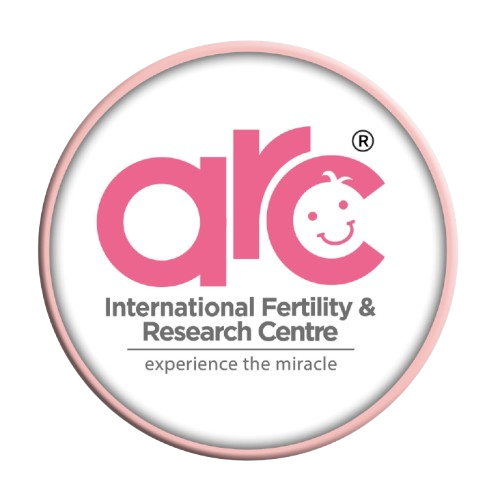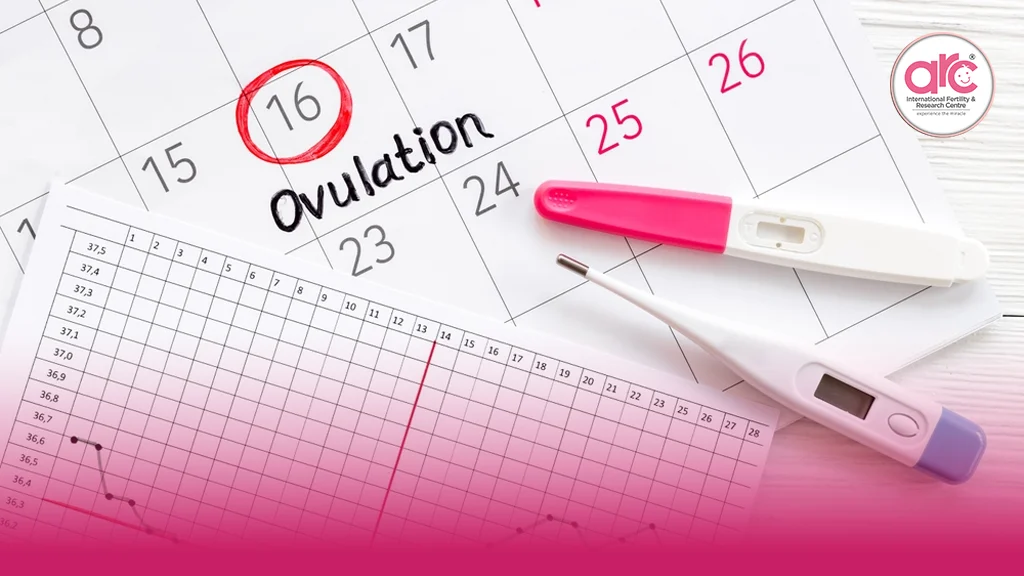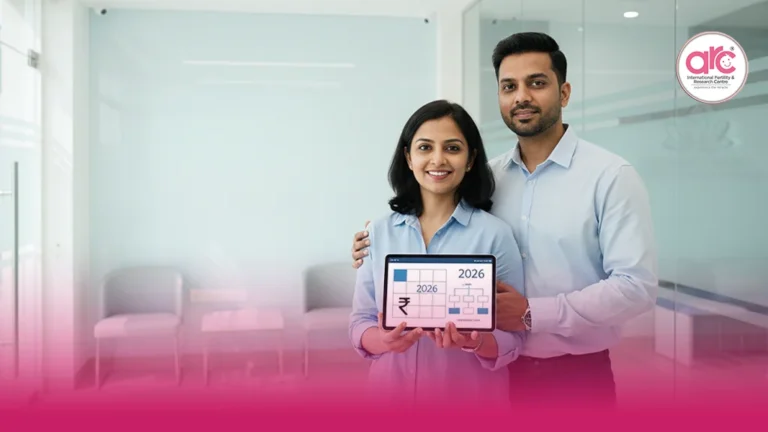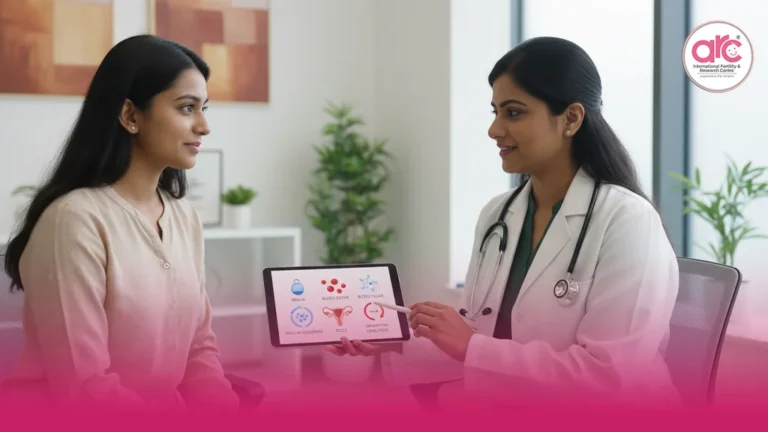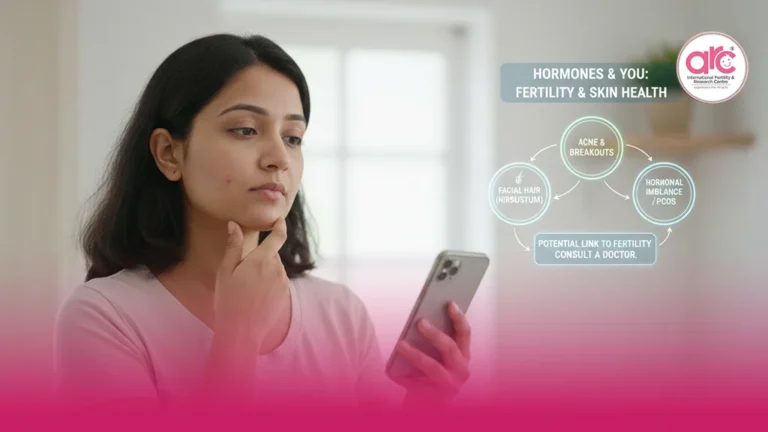Overview
You don’t need to start with needles or machines. Sometimes, all your body needs is timing — guided, not guessed.
That’s what Timed Intercourse (TI) is. It’s the simplest form of fertility guidance, where your natural conception is monitored and directed by a doctor who knows exactly when your body is ready.
Most couples trying for a baby don’t get it right the first few times. Some miss the fertile window. Some deal with hidden issues — stress, weak ovulation, or lifestyle factors that get in the way. It’s not failure; it’s biology asking for a bit of structure.
As a trusted Fertility Hospital in Chennai, we guide couples through this natural method before suggesting advanced treatments. Because sometimes, conception just needs better timing, not technology.
Why Timing Matters
For a healthy couple, the chance of getting pregnant naturally in a month is around 25%. That number drops with age, poor diet, infections, stress, alcohol, or smoking.
But the biggest reason couples miss pregnancy is timing. You might be trying every month but missing ovulation by just one or two days. TI helps you close that gap.
What Timed Intercourse Actually Means
It’s not complicated. TI is basically planned intimacy based on ovulation tracking. We monitor your ovulation pattern and tell you exactly when to try.
Here’s how it works at ARC:
- From Day 2 of your period, we start monitoring follicle growth through ultrasound.
- The mother may take mild medications to support ovulation.
- From Day 9, we track follicle size.
- Once it reaches 14–16 mm, we perform an LH surge test — that’s the hormonal signal your body sends 36 hours before ovulation.
- Based on that, we tell you the ideal days for intercourse — usually alternate days between Day 12 and Day 16.
Why Alternate Days Matter
An egg survives 12–24 hours after ovulation. Sperm can live up to 48 hours inside the uterus.
So when you have intercourse on alternate days, you’re giving both sides — sperm and egg — multiple chances to meet.
If ovulation happens a bit later than expected, sperm from the earlier attempt is still alive and waiting. It’s science, not guesswork.
How You Know You’re Ovulating
Your body gives signals. You just need to notice them.
- LH Surge: Happens 24–48 hours before ovulation — we track this through a test.
- Follicle Size: Seen on scan; ovulation happens once the follicle crosses 16 mm.
- Body Temperature: Rises slightly after ovulation due to progesterone.
- Mittelschmerz Pain: A mild one-sided pelvic pain — the body’s natural sign of egg release.
- Cervical Mucus: Becomes clear and slippery, helping sperm move easily.
At ARC, your consultant tracks all of this for you. You don’t need to decode your own hormones.
Who Should Try Timed Intercourse
- TI is ideal for:
- Couples under 30 or early 30s
- Regular menstrual cycles
- Normal semen analysis (no Ogliospermia or low sperm count)
- No major fertility disorders detected
It’s the first, simplest step before moving to assisted options like IUI, IVF, or ICSI.
Does Timed Intercourse Work?
Here’s the honest truth:
Timed intercourse doesn’t increase your biological chance of pregnancy. It maximizes it.
You’re still working with your natural fertility rate — about 20–25%. But instead of guessing the days, you’re hitting the exact window where conception is most likely.
For many couples, that’s all it takes.
If it doesn’t work after a few monitored cycles, we move forward — usually to IUI (Intrauterine Insemination). And if deeper issues appear, our doctors guide you through the IVF treatment step by step or ICSI treatment step by step, depending on what fits best.
Frequently Asked Questions
1. Is TI required for everyone trying naturally?
No. It’s for couples who’ve been trying for 6–12 months with no success but have normal reports.
2. Will medications cause multiple eggs or twins?
Rarely. We use mild doses, only to support ovulation — not to overstimulate.
3. What if ovulation doesn’t happen even after medication?
We repeat the cycle after adjusting dosage or investigate further causes.
4. How many TI cycles should we try before other treatments?
Usually three. If it doesn’t work, we assess and decide if IUI or IVF makes sense next.
5. What if my LH kit shows no surge?
It means ovulation hasn’t happened yet. We’ll recheck in 12–24 hours.
Why Medical Guidance Matters
Many couples track ovulation apps and test kits at home, and that’s fine — but fertility isn’t always textbook. Hormones fluctuate, stress delays ovulation, and sometimes follicles grow but don’t rupture.
When you’re guided by a fertility specialist, we track your body’s actual progress in real time.
That’s what separates guessing from precision.
At ARC Fertility Hospital in Chennai, we use follicular scans, hormone tests, and clinical interpretation — not just prediction kits. We call you only when your body is biologically ready, not when the calendar says so.
What Happens If It Still Doesn’t Work
If you’ve done three to four properly timed cycles without success, it’s time to look deeper —
semen quality, egg reserve, or subtle hormonal issues.
From there, the next step is usually IUI. It’s still natural, just more precise — sperm is washed, concentrated, and placed closer to the egg. If that doesn’t work, we explain the difference in IUI vs IVF success rate and help you move forward with clarity, not confusion.
Every stage is about understanding your body — not rushing it.
A Final Word from ARC Fertility Doctors
Timed intercourse isn’t a miracle method. It’s guidance. It’s helping your body do what it’s meant to do — at the right time.
Many couples feel lost after months of trying. TI brings calm and control back into that space. It’s not about pressure; it’s about awareness.
We start with the simplest solution, not the costliest. Because sometimes, conception doesn’t need intervention — just insight.
If you’re ready to try naturally with supervision that respects both science and emotion, start here.
Let’s find your right timing, together.
